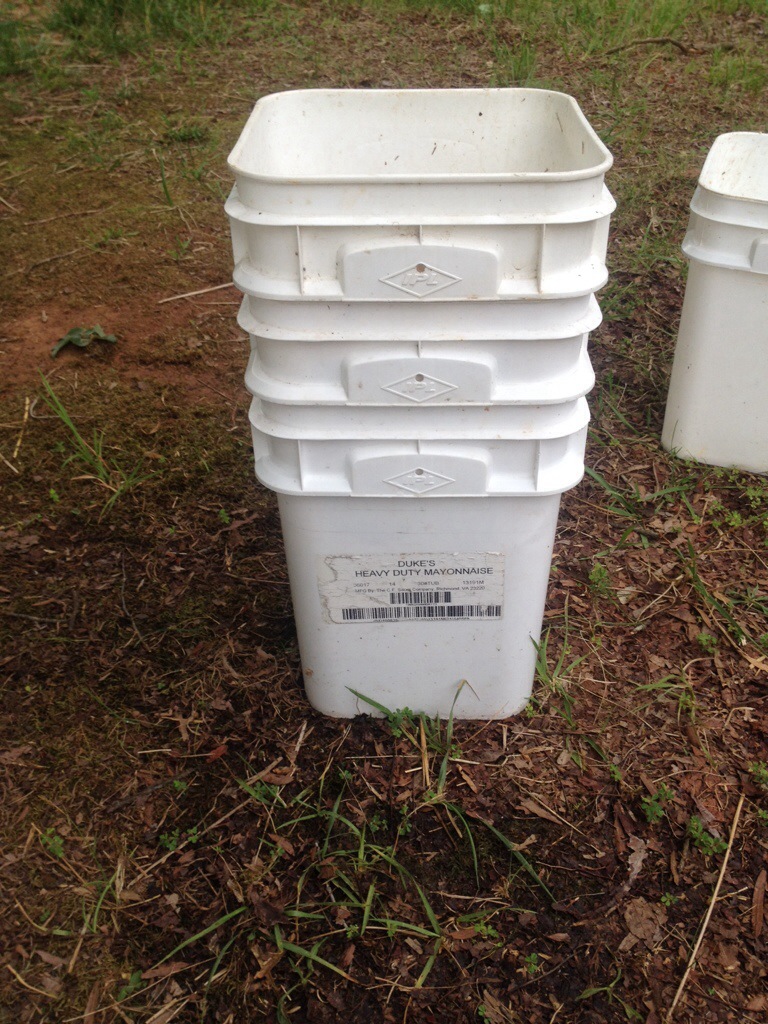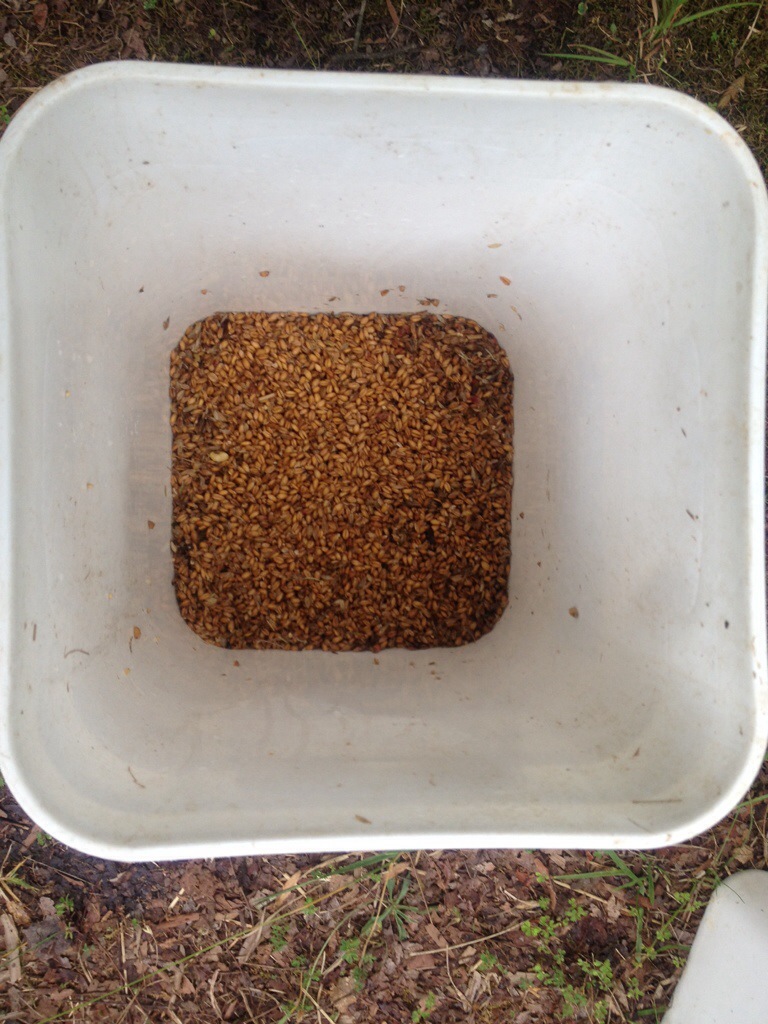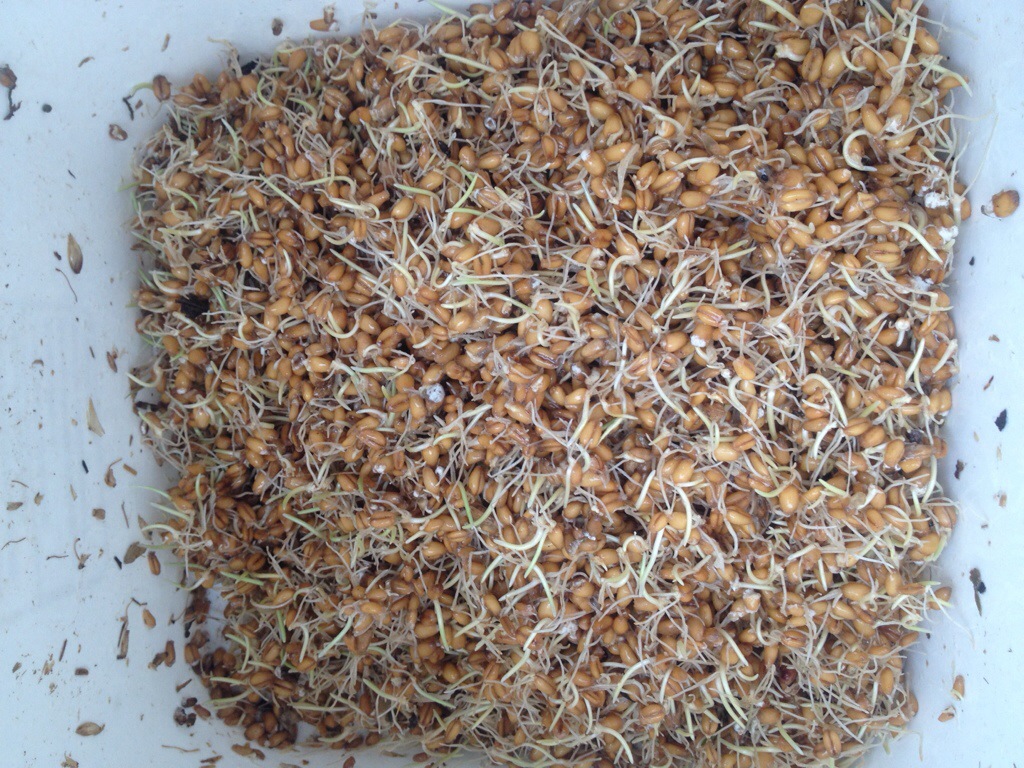Sprouting grains to feed chickens and other poultry is a great way to supply top quality nutrition in a cost effective way. We try to avoid feeding GMO feed whenever possible and 1 great way to do that is by sprouting whole grains and seeds into fodder and feeding that instead of pre-packaged chicken food. It’s very easy and only takes a few minutes a day. Our system involves plastic buckets, a scoop, and some grain. That’s it. We modeled it after Jack Spirko’s Dead Simple Fodder Technique, and the birds are loving it. We take grains like wheat, barley, millet, sorghum, and black oil sunflower seed, and transform them into sprouted fodder. This increases their nutritional value, almost doubles their protein, and makes more of the nutrients bio-available to the flock.
First, I drilled holes in the bottom of the buckets with a 1/8th in. drill bit. I drilled a lot of holes, maybe 40 or so on each bucket. These buckets hold the grain, and allow the sprouts to get rinsed off at least twice a day in order to prevent mold growth. That’s really the only setup involved, as everything else is the sprouting process.
The sprouting cycle begins with an overnight soak of grain. We do about 1 qt. at a time, but adjust this to suit your needs and your flock size. The next morning this grain gets dumped out into one of the drain buckets with holes, and rinsed. That night, a new batch is soaked overnight, and then dumped into a fresh drain bucket that is stacked into the older one. This flushes all the buckets with water, rinsing all of the grain. This process is repeated until the sprouts reach the stage you prefer.
Right now, because it is so hot, we are only going 3 days before feeding, and only have tiny sprouts forming on most of the grain. The chickens seem to like it this way. You could let it go 7 days, and it would form a dense mat of grass and roots, which would be great for animals like horses, goats, sheep, cattle, and pigs.
By soaking and sprouting the grains, we change their nutritional profile, and when we add a mineral mix and other high quality supplemental feed, as well as food scraps and garden waste, our chickens get a healthy and well rounded diet that allows them to lay delicious eggs. If you have chickens look into sprouting some grains for them. Go to your local feed mill and ask for untreated barley or wheat and give it a try. If you decide it’s not for you, the chickens will eat the unsprouted grain as well, so there really isn’t much to lose.


